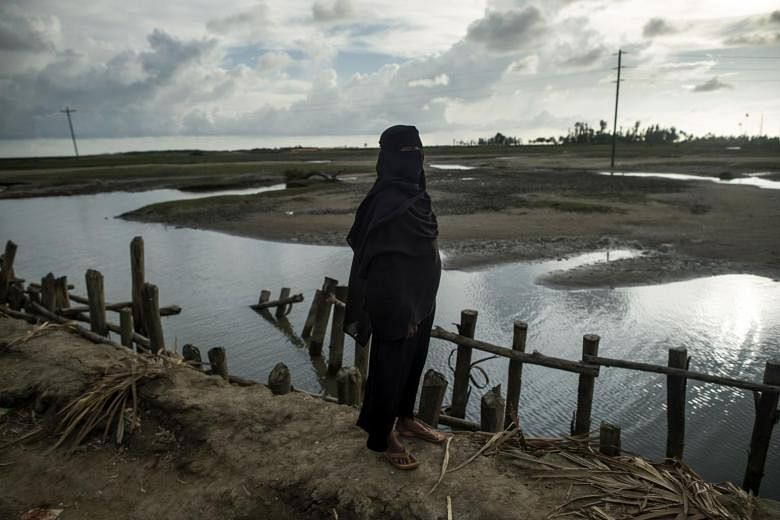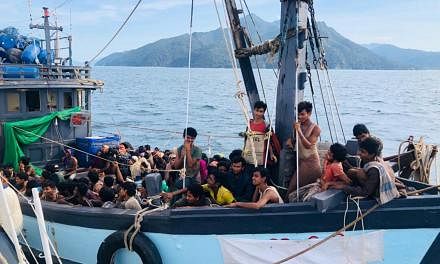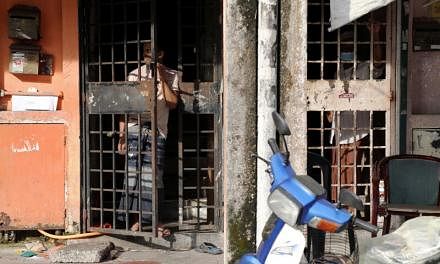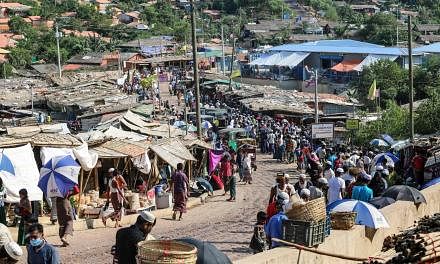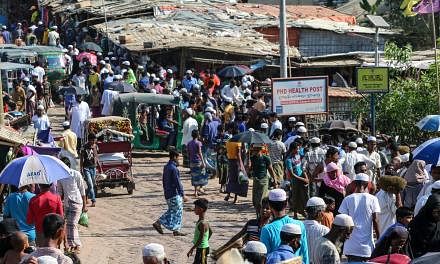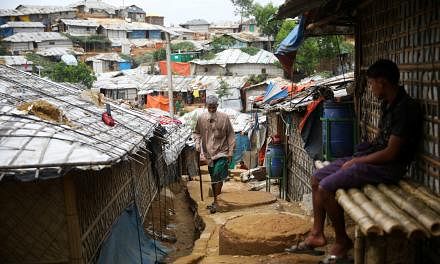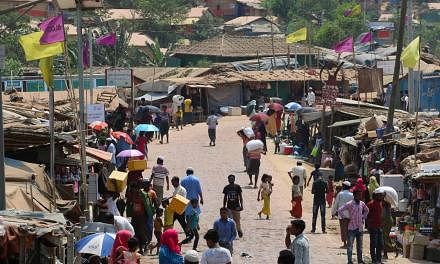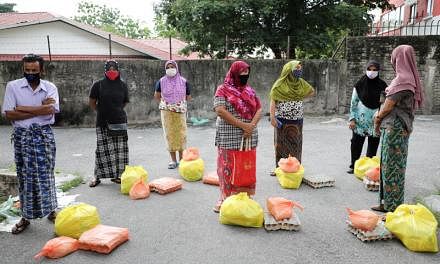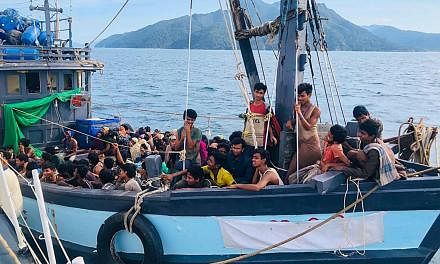In the past month, the Asean 2017 website - which the Philippines hosts as current chair of the group - has posted condolences to the victims of bombings in Iraq and Hurricane Irma in the Caribbean.
But, noted Dr Michael Vatikiotis at a roundtable on Asean's future yesterday, the website had nothing on the Rohingya crisis in Asean's own backyard, although it was one of the largest exoduses under two months, as more than 500,000 Rohingya fled from Myanmar's Rakhine state to Bangladesh.
The roundtable was organised by the ISEAS - Yusof Ishak Institute here to mark Asean's 50th anniversary this year.
Observers said the scale of atrocities against the Rohingya in Myanmar since Aug 25 was "unprecedented".
Dr Vatikiotis, who is Asia regional director at the Centre for Humanitarian Dialogue, said tensions within Asean on the crisis had got to a point that Malaysia, for one, wanted Myanmar expelled from the grouping.
Indonesia's former foreign minister, Dr Marty Natalegawa, who spoke at a separate session, lamented Asean's " deafening silence" during security and human rights debates on the Rohingya at the United Nations last week.
"To me, that is unacceptable," said Dr Natalegawa. "We were so deliberately invested in Myanmar's democratic process and now suddenly we've switched off, snatching defeat from the jaws of victory."
Dr Vatikiotis noted the contrast between Asean's "inability to act" in the Rakhine crisis to its speed and proactivity when Myanmar was badly hit by Cyclone Nargis in 2008.
The rub, he said, was Asean's insistence on holding to its "bedrock" principles of non-interference in its member-countries' domestic concerns and requiring consensus from all members before doing anything big.
But the group now risked losing its credibility with such an approach to the Rohingya crisis, he said, noting that in the past, Asean had set aside that approach and intervened to help on humanitarian grounds, such as in tsunami-hit Aceh in 2004.
More recently, said former Philippines foreign secretary Delia Albert, her country and Indonesia opened direct communication channels between terrorist-infested Mindanao and Manado to help the Philippines stamp out terrorist attacks in Mindanao's Marawi city.
Also speaking yesterday was Singaporean diplomat and former Asean secretary-general Ong Keng Yong. He said Asean now even had a "rather good formula" for stepping into a member-country's domestic crises, which was for a stricken member-state to brief all the other members and say: "If you have constructive comments, we will take it in, so it is not of anyone interfering."
In his session, Dr Natalegawa noted how his country, for one, had tabled many domestic problems "of our own making" for Asean to discuss, to encourage its members to help solve one another's major domestic crises.
But, he added: "The response, for the most part, was deafening silence. None of the countries wanted to speak about it, they did not ask about it, nor did they expect that we would bring these matters (to Asean)."
